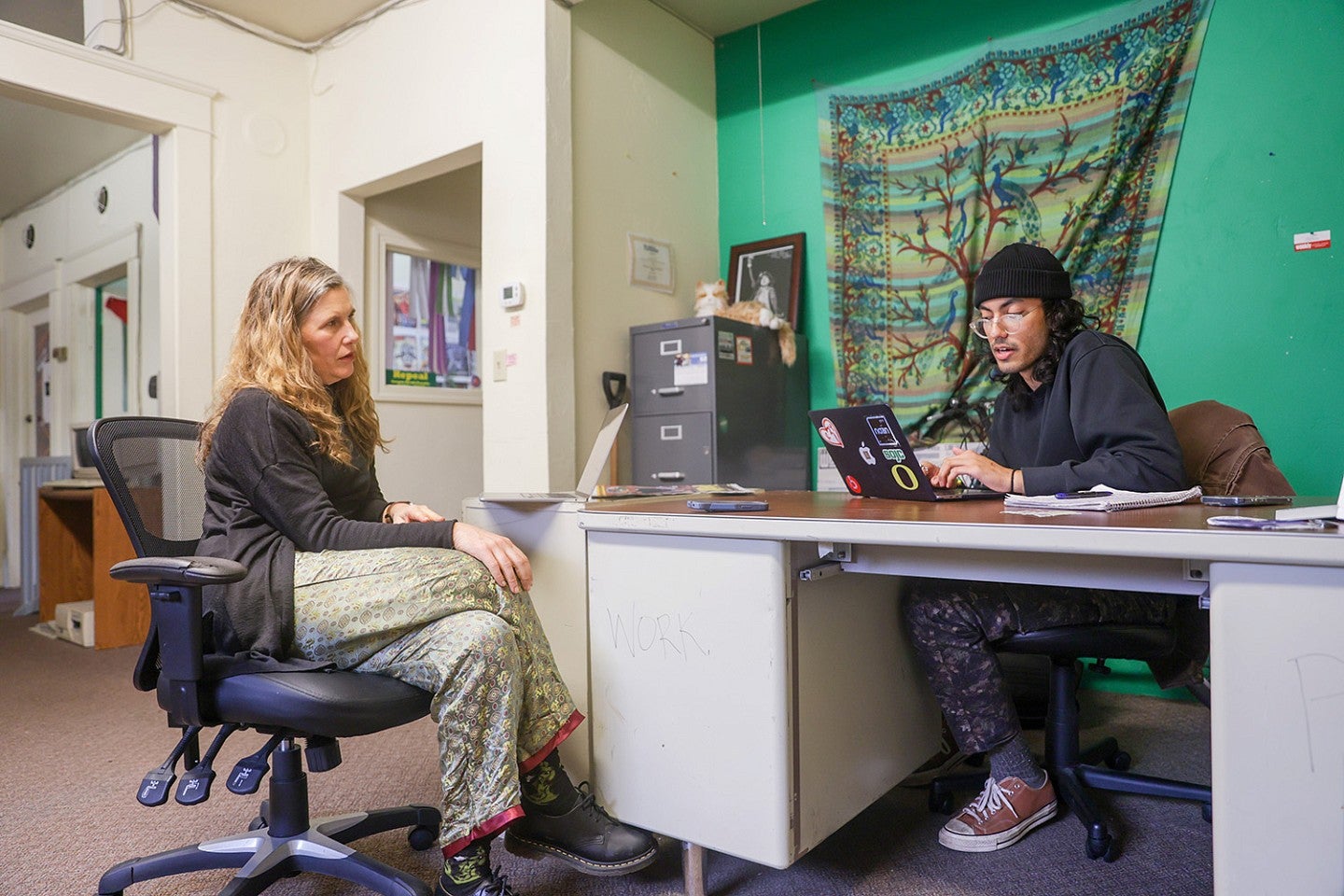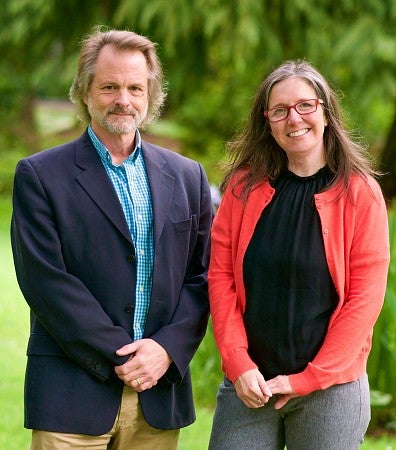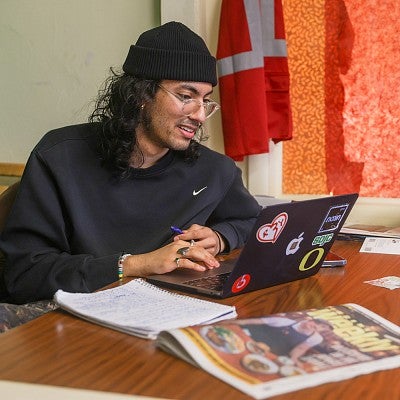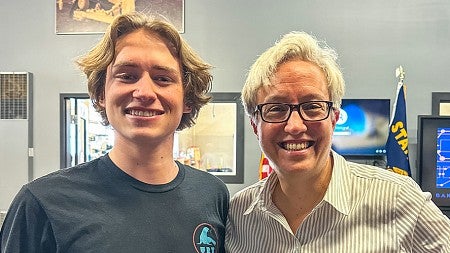
When Eugene residents woke up on the morning of Dec. 28, many were greeted with the devastating news that there would be no print edition of the Eugene Weekly (EW) for the first time in 20 years.
It wasn’t long after Editor-in-Chief Camilla Mortensen, a UO School of Journalism and Communication (SOJC) instructor, announced the news, that the community began to rally on behalf of the longtime weekly.
Support started pouring in from local businesses and individual contributors, alike, allowing the publication to rehire four full-time employees and 2 half-time employees. But it would take time to catch up to the point that the paper would have the 10-person staff it was forced to lay off just days after Christmas. That’s when the SOJC stepped up to help.
SOJC professors began encouraging students to pitch their work to the paper, and they created assignments that allowed students to report on local news. The EW has had a long-standing relationship with SOJC students that Mortensen said existed before she joined the publication in 2007. And since 2017, the Catalyst Journalism Project has worked with the EW to help fill content gaps in the publication, while also giving students experience working for a local news outlet.
Local news outlets welcome student work

The Catalyst Journalism Project, which was founded by journalism associate professor Brent Walth and journalism professor Nicole Dahmen in 2017, currently has seven students interning at the EW, working on a range of stories that deal with issues around local schools, juvenile detention, mental health, and the opioid crisis. The program focuses on teaching two distinct but complementary journalistic practices — solutions journalism and investigative journalism — while helping SOJC students publish their work in professional news outlets like the Eugene Weekly, OPB and The Lund Report.
Walth says the relationship between Catalyst and local news organizations allows students to fill growing news gaps in the community, as reporting staffs shrink.
“We’ve had students covering schools, city hall, county commission and homelessness on a dedicated basis,” Walth said. “We now have more than a dozen students working with Catalyst, either as ongoing coverage or on longer-term projects.”
Investigative journalism often focuses on accountability within communities, while solutions journalism focuses on progress-based stories, going beyond the media’s typical negativity bias to cover the successes communities have had in solving problems.
Walth said that although the two approaches seem different, they often work hand in hand.
“What students who take part in Catalyst Journalism Project have shown is that you can do one, and then follow with the other,” Walth said. “You can do an investigative story, following with a solutions story, following with a watchdog story, followed with another solutions story. It becomes a strategy for impact.”
Bentley Freeman, a Catalyst intern at the EW, said that this type of approach is important because it allows citizens to stay informed without having to do the leg work on their own.
“Community news is very vital, especially in a city like Eugene, where there are so many different people who are disenfranchised — be that the people dealing with mental health or people dealing with houselessness,” Freeman said.
Closing the local news gap

In Eugene, the EW is the only fully local paper since Gatehouse Media purchased the Register-Guard and laid off much of its local staff in 2018. To help close that local news gap, SOJC students have been publishing news stories in the Eugene Weekly, leading to experiences like Faheem Khan’s. Khan writes for the EW’s Chow section, which focuses on food and culture, as well as harder news, such as stories about the national veterinary shortage.
“It’s been such a positive experience for me, just being able to work with them and seeing firsthand how impactful local news is to this day,” Khan said. “A lot of people discount it, and the reality is, people value it a lot.”
Khan said that through his internship, he’s come to see how local communities depend on local newspapers for their information.
“It serves as that typical community builder and that network that people value,” Khan said. “A lot of times, as far as communication goes in a community — especially in more rural areas or even cities like Eugene — I’ve realized that people truly depend on the newspaper not only to get information, but also to lead their daily lives and figure out their next steps.”
Fellow EW intern Freeman echoed that sentiment, pointing to the ice storm that hit Eugene in January and the role local journalism played in alerting community members to the dangers and details of clean-up efforts.
"Without local news, it creates news deserts, and people won’t know what’s happening with their city council or a county board of commissioners or the sheriff's office or the police force or what's happening with the courts,” Freeman said. “It’s important because it helps give people a way to stay informed without them having to do all the leg work.”

Student reporters get a range of experience
Aside from connecting with the community, Freeman said working with Eugene Weekly has given him invaluable experience and knowledge of professional newsrooms. He’s covered beats from city council to one-off stories, like experiences with intuitive mystics.
“It’s one thing to learn about how to practice and to meet a journalist in a class, it’s another thing to actually go and do it in a professional newsroom like Eugene Weekly,” Freeman said. “Camilla has given me a lot of opportunities to cover both whatever I want, and also she’s the kind of editor to push me into the deep end and trust that I will be able to float.”
—Ella Norton, public relations ’24
Ella Norton (she/her/hers) is a third-year student majoring in public relations and French from Kansas City, Missouri. She is a copy editor for Align Magazine, an account executive for Allen Hall Public Relations and academic development chair for her sorority.
